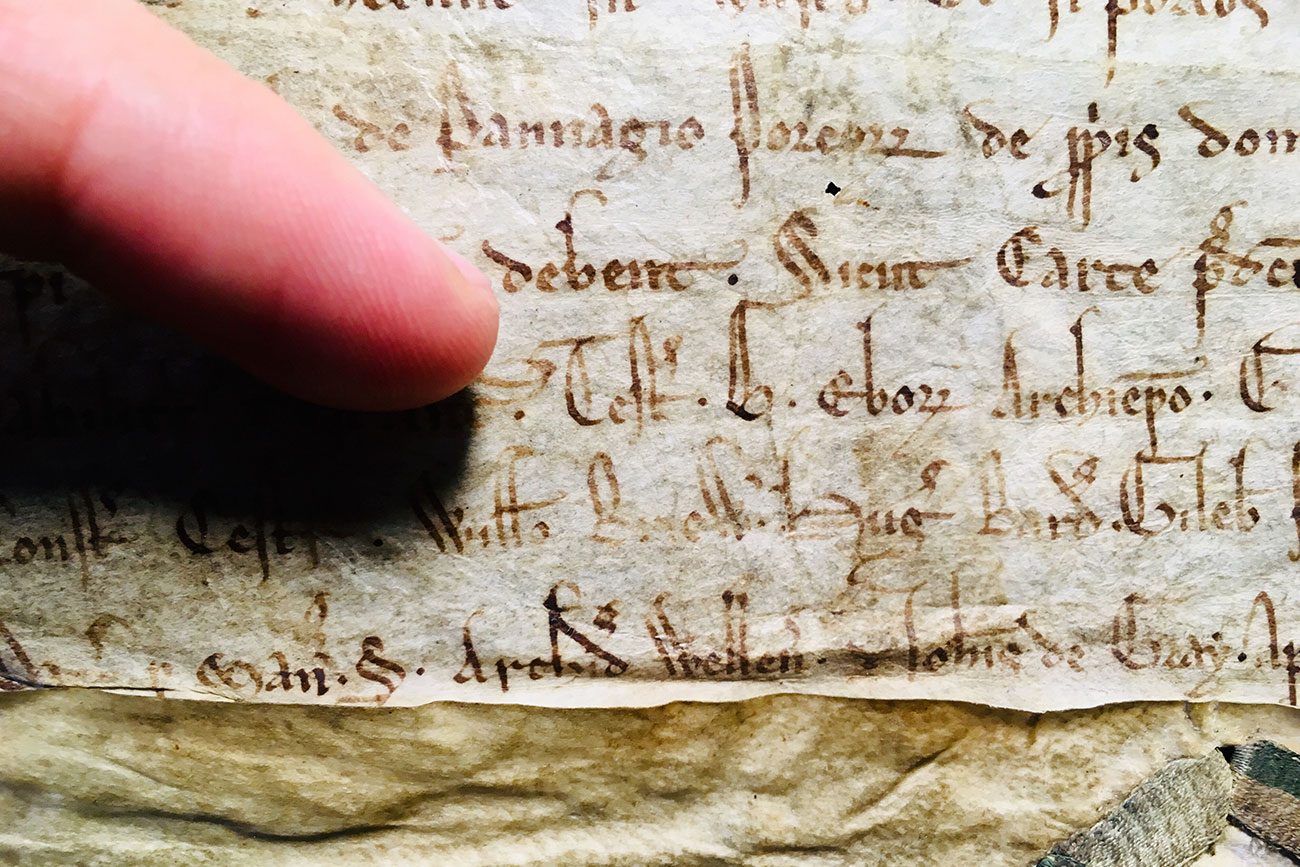An original royal charter from the first year of King John’s reign has been discovered by historians.
The rare document, which was not previously known to have survived, carries the seal of King John and is dated March 26 1200, issued in York exactly 819 years ago.
The document is held in the archives of Ushaw College Library in Durham and was discovered by University of Bristol historian Dr Benjamin Pohl during his time as a visiting fellow at the Durham Residential Research Library.
Dr Pohl spotted the charter by chance while examining the medieval manuscript holdings of Ushaw College Library.
He immediately recognised the document as an original royal charter, carefully prepared and written in what is known as a “court hand”, likely belonging to a professional scribe, who might have been a member of the king’s government department or chancery.
Regal rarity

Dr Pohl said:
-
Discovering the original charter at Ushaw is extremely exciting, not least because it allows us to develop a fuller picture of the people who were present at York on March 26 1200 and eager to do business with the new king.
Medieval charters are important not just because of the legal acts they contain, but also for what they can tell us about the society and political culture at the time.
Indeed, their issuing authorities, beneficiaries and witnesses provide a cross-section of medieval England’s ruling elites.
Our charter might best be described, therefore, as a kind of ‘who’s who’ of northern England and beyond at the turn of the 13th century.
Three witnesses

Walter and Robert were nephews of Simon, a chamberlain of Durham who had originally received these grants from his bishop, Hugh de Puiset, sometime before 1183 but who later decided to part with the bequests to provide for his two younger relatives.
The bishop’s charter recording the original grants to Simon is also held within the Durham Residential Research Library collections, allowing the two original documents to be compared and studied side-by-side for the first time.
The discovery of the original charter enabled comparison with a copy, captured on a medieval administrative record known as a ‘charter roll’, which revealed a surprising difference.
While the charter roll copy listed just three witnesses present when the charter was issued at York, the original charter, found in Durham, lists nine witnesses, including some of the most powerful individuals of the time, several of whom held prominent positions in King John’s government.
